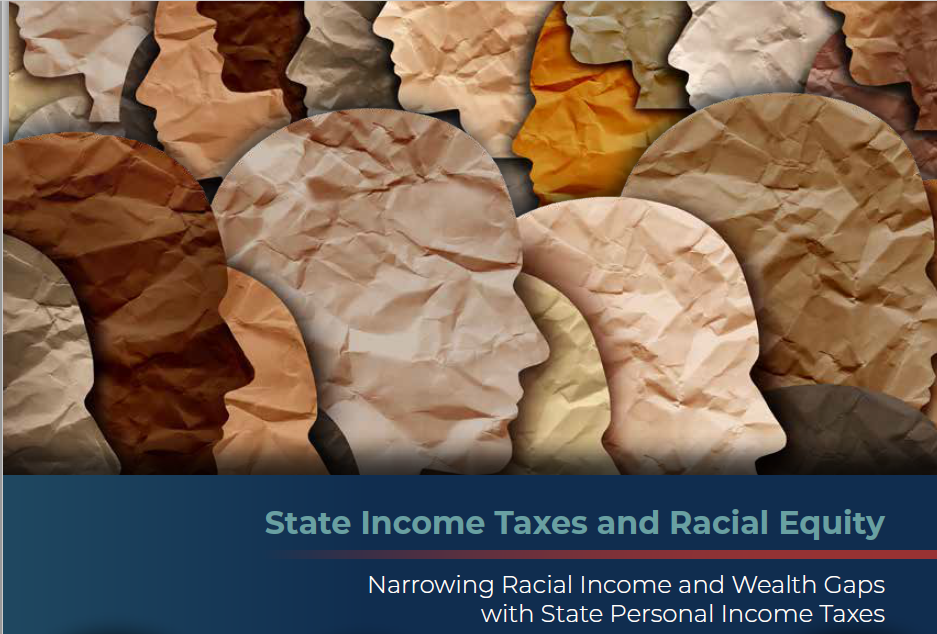A new report from the Institute on Taxation and Economic Policy outlines how state lawmakers can advance racial equity by reforming their personal income tax, revamping taxes on homeowners and investors, and strengthening tax credits for families.
The report, State Income Taxes and Racial Equity, is the second in a series that will examine how state tax codes impact the racial income and wealth gaps and offer policy recommendations for addressing those inequities. Currently, all but five state tax systems are upside down, meaning they tax the top 1 percent at a lower rate than the poorest 20 percent. Longstanding economic and social injustices, including unequal access to education and job discrimination among other things, have created an economy in which white families are more likely to thrive, build wealth and be in the highest-income brackets. So, state tax systems that rely more on regressive consumption taxes than on progressive income taxes directly contribute to the post-tax racial income gap.
“Addressing racial inequities will require a concerted effort across policy areas at all levels of government,” said Carl Davis, research director at ITEP and an author of the report. “For states, one important component of this effort should be personal income tax reform.”
The report offers 10 policy reforms that make tax systems more equitable and begin to address the racial income and wealth gaps:
– Levy higher tax rates on top earners
– Tax investment income equitably
– Tax pass-through business income equitably
– Eliminate or restructure retirement tax preferences
– Allow single parents to file as head of household.
– Allow local governments to levy a robust personal income tax
– Provide tax credits to renters
– Strengthen tax credits such as the Earned Income Tax Credit (EITC), the Child Tax Credit (CTC), and the Child and Dependent Care Credit.
– Free up local governments to levy progressive income taxes in lieu of regressive sales taxes, excise taxes, fees, and fines.
At the national level, policymakers are determining whether to increase tax rates on the highest-income households and expand the CTC and EITC so that those programs will provide more help to low-income working people and families with children. Federal policies that address the nation’s deep class and racial economic divisions are part of the solution, but states can step up as well.
The report recommends that state lawmakers look beyond headline tax rates and toward a careful design of income tax bases. For example, equitable taxation of investment income derived from families’ wealth should be a top priority as almost 90 percent of the kinds of assets most likely to generate taxable capital gains income are held by white families, and an overwhelmingly share of that is held by a small slice of white families at the very top. States can also build on success at the federal levels (some states already have) by using refundable tax credits to lift families with lower incomes.
“The nation is having a critically important conversation about systemic racism and the role our public policies have played in exacerbating racial inequities,” said Marco Guzman, a coauthor of the report. “Decades of policies and social practices have created deeply unequal outcomes for Black and brown communities compared to their white counterparts. Tax policy is not a singular solution to this deep social challenge. But by examining data and understanding how the tax system exacerbates class- and race-based inequities and then crafting policies to remedy those inequities, tax policy can be part of the solution.”





